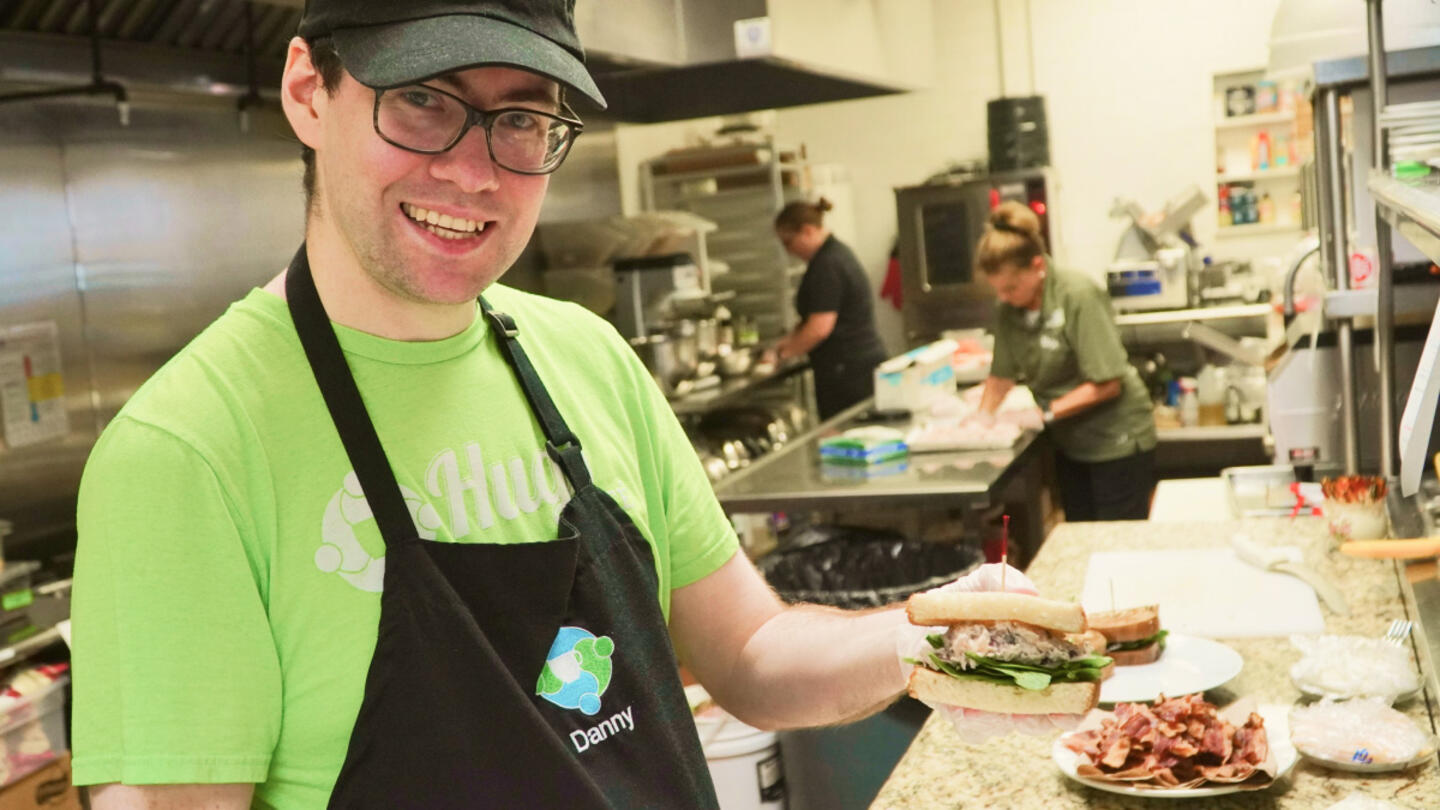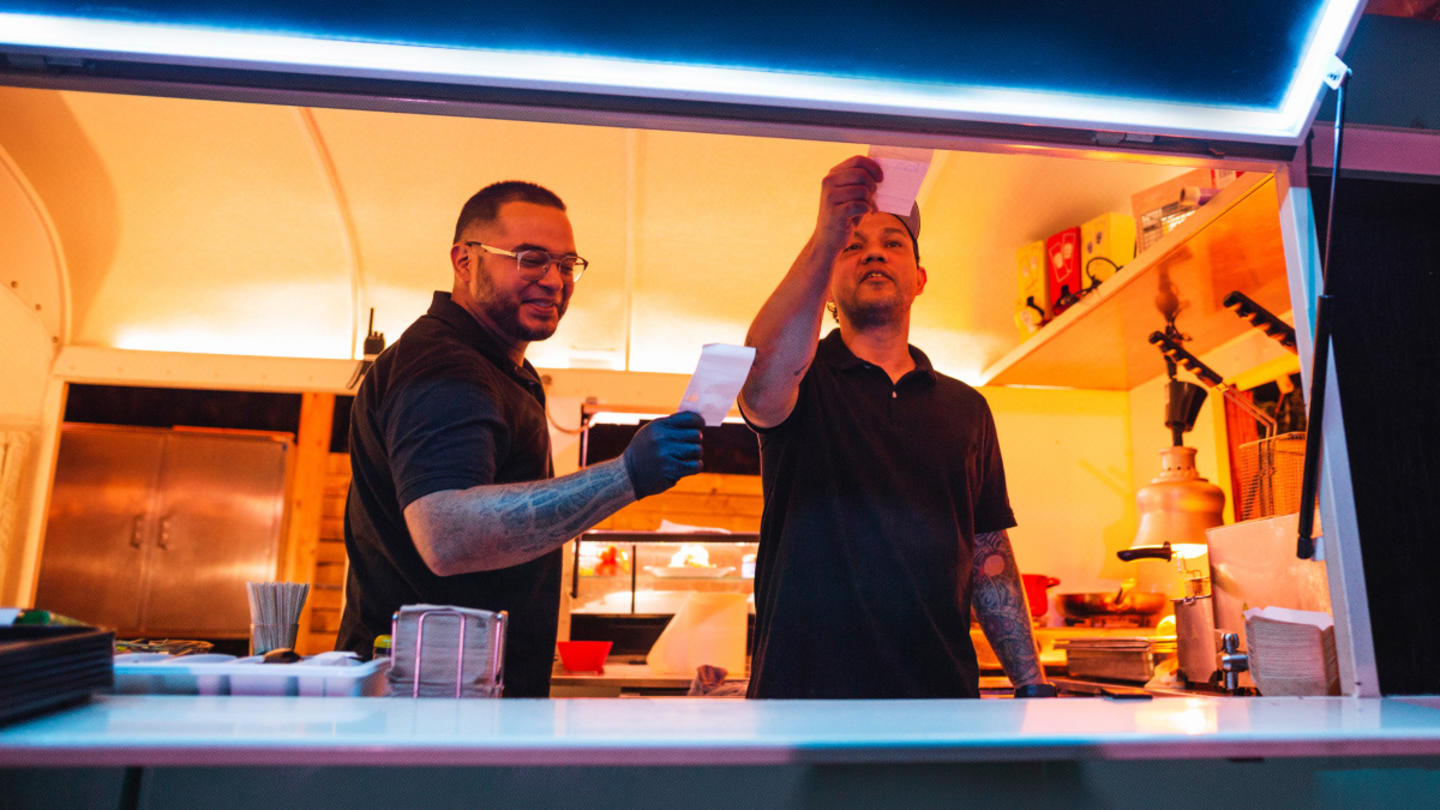Imagine standing at the base of a 300-foot cliff. People are on a plateau at the top, going about their business. You’d love to join them, but you have no climbing gear — no helmet, no bolts, no carabiners, not even any rope — and you don’t know the first thing about scaling a rock face. You just stand there, staring at the people above you, wondering how they got there.
For people affected by poverty and struggling to make ends meet, improving their financial circumstances can feel like that rock face. Somehow, others have reached the top. They’ve done what feels impossible to you.
Now imagine that while you’re standing there, some experienced climbers bring you equipment. They drop a bundle of rope and tools at your feet, pat you on the back, and then move on to find another lonely climber.
Has anything actually changed? You still don’t know how to scale a vertical wall.
The most effective organizations fighting poverty do more than just provide money or supplies. They know that empowerment is the true unlock for the individuals they serve. They do more than teach skills and leave the person to find their way. They climb, too. All three of the following organizations are doing just that — climbing steep cliffs alongside people experiencing poverty. They’re investing in people with resources — but also with time, belief, confidence, and community.
Entrepreneurs are everywhere
Entrepreneurs are plentiful in underserved communities, but they face steep barriers to success. They have grit and resilience, know how to work hard, and are resourceful despite obstacles, but they’re standing at the bottom of their own cliffs, wondering how to get to the top.
Edna Rashid found herself facing a steep climb after a family tragedy. Her 33-year-old daughter died of congestive heart failure. With children of her own still at home, she suddenly found herself caring for her two young grandchildren, one of them with special needs. It quickly became too much for her. “Trying to balance my life issues resulted in early retirement,” she said.
She needed a new way to support her family. A friend recommended she look into Rising Tide Capital, a nonprofit that helps underserved entrepreneurs start and grow small businesses to create jobs and economic opportunities for themselves, their families, and their communities.
The organization provides high-quality business education and consulting services custom-designed for the needs of entrepreneurs starting and growing businesses in economically distressed communities.
This training and support dramatically increases the likelihood of success for business owners. An average of 80% of Rising Tide entrepreneurs are still in business after five years, compared to just 50% nationally. After two years these entrepreneurs see a 63% increase in household income, a 95% increase in business sales, and a 59% decrease in their reliance on public assistance.
“Rising Tide enables people to translate their creative potential into something that’s self-directed, economically productive, and valuable to the world around them,” said Co-founder Alex Forrester. The staff helped Rashid and her son, Qasim, write a 90-day action plan, get their first business loan, find pro bono legal support, and create marketing and business plans. Together they created a thriving insulation business.
“Capital isn’t just money, you know?” said Rashid. “You could give me money, but if I don’t know what to do with it or if I misuse it, I’m still going to be where I am. But if you put resources into me, you put time into me, you develop the human capital.”
Sign up for the Strong & Safe Communities newsletter for stories, ideas, and advice from changemakers working with their neighbors to address the biggest problems we face.
Replacing credit scores with trust
For many people surviving on the edge of poverty, all it takes is one misfortune to disrupt a positive trajectory. This is what happened to a young woman named Leti.
Like Rashid, she lost a child, causing her to fall into a deep depression. Leti couldn’t work because of it and eventually lost everything, including her food truck business. As she slowly recovered emotionally, she found herself starting over financially. She had no savings, and most financial institutions would see her business failure as a sign that loaning her money would be too risky. Feeling like she didn’t have a lot of options, Leti began cleaning homes to support herself.
She was cleaning four houses a week when she found JUST, a nonprofit financial services platform that invests in Hispanic and Black female entrepreneurs. Leti joined the JUST community and secured her first loan of $750. When she applied, JUST wasn’t interested in the failed food truck. And no one asked for her credit score.
Steve Wanta, CEO and co-founder of JUST, is rewriting the rules of lending to people with low incomes. “Our financial system in the United States is not designed to trust people, especially those without money,” he explained. Credit scores don’t paint an accurate picture of capability for thousands of people who have (in some cases) been penalized by the system or can’t get a foothold in the first place, and building up a longstanding credit history is impossible without that initial foothold.
JUST addresses this problem by providing loans to ambitious women based on trust. And it works. JUST never asks for a credit score. To date, the organization has provided over $21 million in loans – and the repayment rate is 99%.
Community members are supported by peer coaches and a network of women entrepreneurs who have climbed their own barriers to success. Leti’s cleaning business has grown from a one-person operation to a business that provides employment for more than 30 people. “That $750 [to Leti] started a new way of seeing herself, and most importantly, her future,” Wanta said. “There are millions of people like her who deserve a chance. They are more than their credit score. We dare to trust people are capable.”
A well-paying job is more than a better paycheck
For Jarred Gaines, like millions of Americans, the life disruption that set him back at square one was COVID-19. Gaines had been working in Boston as a personal trainer and hotel night auditor with plans to open his own fitness center in March 2020 when the pandemic hit.
During shutdowns, 58% of fitness professionals lost some or all of their income, and nearly 7 million workers in the hospitality industry lost their jobs in just the first two months. Gaines put his fitness center dream on hold indefinitely and found that income from both his jobs began dwindling rapidly. Supporting himself and his 9-year-old son became a struggle.
Then a friend told him about Per Scholas, a nonprofit that offers tuition-free courses in tech careers to underserved learners. Per Scholas’ mission is simple: ensure learners secure a meaningful and well-paying job after they complete the program.
Tech skills are just a piece of the puzzle. Per Scholas understands this, which is why it dedicates 20% of the curriculum to developing professional skills, providing learners one-on-one preparation for communication, collaboration, and other vital skills they need to succeed in their new role. After a learner graduates the program, the organization continues to support — climb alongside — them with counseling and mentorship for two more years.
Despite having no previous tech experience — save for updating his iPhone — Gaines enrolled in a 12-week Amazon Web Services (AWS) program Per Scholas designed in tandem with Amazon. The course included training in Linux, Python, networking, security, relational database skills, and professional development. When he graduated in October 2020, he started his first job in the IT field as a customer service analyst.
“[Per Scholas] literally gave me a restart in life,” Gaines said. “It allowed me to rebuild that confidence and enter a field where I can make a competitive income to sustain myself in Boston.”
According to Per Scholas CEO Plinio Ayala, having a comfortable, well-paying job is life-changing on multiple levels. It not only creates financial security, it also gives a person the mental and physical freedom to plan for their future. “Often people are worried about how they’re going to pay their rent tomorrow or put food on the table,” Ayala said. “You can’t be forward-thinking if you’re worried about the moment right now. And so once you build these careers, once you are able to land these great jobs, you can think about your future. You can think about your family’s future. You can be a part of the community in ways that perhaps you weren’t before.”
***
The organizations featured are supported by Stand Together Foundation, which partners with the nation’s most transformative nonprofits to break the cycle of poverty.
Learn more about Stand Together’s efforts to build strong and safe communities, and explore ways you can partner with us.

People with disabilities want meaningful work — and Hugs Cafe is making it happen.

At this ‘resort,’ children with intellectual disabilities are seen as gifts to be celebrated and loved.

Veterans experience loss when leaving service. Could this be key to understanding their mental health?

The Grammy-nominated artist is highlighting the stories we don’t get to hear every day.
